
Information Technology courses in Melbourne
Course providers in Melbourne
The following providers offer Information Technology courses in Melbourne, Victoria.









































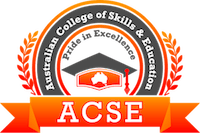

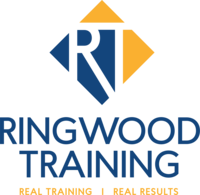







Career Pathfinder
Skills shortages + AI Exposure
Discover in-demand careers and understand how each role may be impacted by AI and automation.
- See in-demand occupations across Australia
- Check AI Exposure ratings
- Compare training duration and average income
Choose a study area
Artificial Intelligence
If you're keen to advance your career in the rapidly evolving field of artificial intelligence, Courses.com.au offers a selection of high-quality trai...
Blockchain
Are you looking to enhance your expertise in Blockchain technology? At Courses.com.au, you can explore a variety of advanced courses designed for expe...
Business Intelligence
Are you looking to advance your career in Business Intelligence? Australia offers a range of comprehensive courses tailored to equip you with the skil...
Cyber Security
Cyber security is a crucial field that focuses on protecting systems, networks, and data from digital attacks. In Australia, numerous training provide...
- Cyber Security Specialist
- Chief Information Security Officer (CISO)
- IT Risk Manager
- Head of Cyber Security
- Information Security Analyst
- Cyber Security Analyst
- Cybercrime Investigator
- Cyber Security Engineer
- Cyber Security Consultant
- Cyber Security Technician
- Cyber Security Architect
- Cyber Security Auditor
- Computer Forensic Analyst
- Financial Crime Analyst
- ICT Security Specialist
- Security Analyst
- Penetration Tester
- Security Architect
- IoT Engineer
- IT Auditor
- Cyber Defender
- Ethical Hacker
- View all
Data Analytics
Data analytics is a pivotal skill in today's data-driven world, transforming vast amounts of raw data into actionable insights. If you're eager to sta...
Database Development and Administration
Database Development and Administration is a thriving field within the realm of Information Technology, offering a myriad of courses tailored to diver...
Digital Product Development
Digital Product Development is an essential field in today's technology-driven world, providing the foundation for innovation and creativity in variou...
IT Networks and System Administration
If you're looking to start a career in IT Networks and System Administration, Courses.com.au offers a comprehensive list of courses tailored to your n...
- Help Desk Support
- Service Desk Analyst
- Systems Engineer
- Cyber Security Specialist
- Senior Systems Engineer
- Systems Administrator
- Cloud Engineer
- Chief Information Security Officer (CISO)
- IT Risk Manager
- Network Engineer
- Technical Project Manager
- Network Administrator
- QA Tester
- Software Tester
- Computer Engineer
- Network Architect
- Technical Architect
- Network Specialist
- Cloud Architect
- Infrastructure Architect
- Enterprise Architect
- Network Manager
- Network Designer
- Network Technician
- Information Systems Manager
- IT Operations Manager
- Network Analyst
- Computer Systems Engineer
- ICT Architect
- Computer Architect
- Chief Technology Officer (CTO)
- IT Director
- Broadcast Engineer
- Security Analyst
- ICT Support Officer
- View all
IT Support
If you are looking to embark on a rewarding career in IT Support, Courses.com.au offers a comprehensive selection of IT Support courses designed to su...
Machine Learning
Machine learning is at the forefront of technological innovation, transforming industries and creating new job opportunities across Australia. If you ...
Programming
If you're considering a rewarding career in technology, exploring the diverse range of programming courses available in Australia can set you on the r...
- Junior Programmer
- Programmer
- Software Developer
- Systems Tester
- Automated Tester
- Backend Developer
- PHP Developer
- Java Developer
- Analyst Programmer
- Javascript Developer
- Integration Developer
- Application Developer
- Mobile Application Developer
- Sitecore Developer
- Salesforce Developer
- Software Architect
- Test Engineer
- Integration Engineer
- Software Engineer
- Test Analyst
- Devops Engineer
- Application Support Analyst
- Applications Engineer
- Information Architect
- .NET Developer
- Systems Designer
- E-Commerce Developer
- Software Designer
- Computer Scientist
- Application Designer
- Machine Learning Engineer
- Game Programmer
- Cloud Developer
- Algorithm Engineer
- Python Developer
- Developer Programmer
- React Developer
- Software Development Manager
- Software Project Coordinator
- View all
System Analysis
If you're interested in pursuing a career in System Analysis, Courses.com.au is the perfect resource for finding suitable courses across Australia. We...
- Systems Analyst
- IT Project Manager
- Systems Architect
- Systems Consultant
- Functional Analyst
- Solutions Analyst
- Integration Analyst
- Solutions Architect
- IT Consultant
- Technical Business Analyst
- Technical Consultant
- Enterprise Solutions Architect
- ICT Architect
- Solutions Designer
- Technical Lead
- ICT Project Manager
- Security Analyst
- View all
Telecommunications
Telecommunications is an ever-evolving field that offers numerous opportunities for aspiring professionals. In Australia, Courses.com.au provides a co...
Common questions
An IT-related bachelor’s degree can be very helpful when looking for work in this field. This is because a long, focused course helps you build your IT knowledge and skills, as well as make contacts in the industry.However, a bachelor’s degree is not a requirement. If you can demonstrate the skills and aptitude relevant to performing an IT job, then you can be competitive in the job market without a bachelor’s degree.
 Stephen Charlton
Stephen Charlton
You can gain IT job skills by completing vocational education and training, short courses and gaining practical experience in the field. Practical IT experience can be gained by freelancing, volunteering, working in related entry-level jobs and building a portfolio of projects. You may wish to publish your projects or contribute to collaborative open-source projects. Many IT professionals publish both types of projects on GitHub.Projects that produce something that is used by you, or ideally other people, will be viewed most favourably, as they demonstrate the ability to solve real-world problems.
 Stephen Charlton
Stephen Charlton
Vocational education and training can help you gain hands-on IT experience and expand your network. Together with a portfolio, such qualifications can be used to gain an entry-level IT job or freelance work. Such work experience can then allow you to move into more senior IT roles.Vocational education and training can also provide an alternative pathway to meet entry requirements for higher education courses such as a bachelor’s degree, as opposed to year 11 and 12 coursework, and form the basis for entering the workforce with a higher qualification.
 Stephen Charlton
Stephen Charlton
Networking in IT can advance your knowledge of the field and allow you to source recommendations for open positions.There are various IT professional bodies in Australia that can offer networking opportunities through events and programs. Examples include the Australian Computer Society (ACS), Australian Information Industry Association (AIIA), Tech Council of Australia (TCA), Australian Web Industry Association (AWIA) and Women in Technology (WIT).
 Stephen Charlton
Stephen Charlton
You don’t need to know how to code to get a job in IT. Many jobs in IT require coding skills, but not all. IT is an expansive field that crosses over many disciplines and industries. Therefore, numerous jobs in IT do not require coding skills and instead rely more on interpersonal and creative skills such as project manager, business analyst, user experience (UX) designer, user interface (UI) designer and customer experience (CX) designer.
 Stephen Charlton
Stephen Charlton
 Stephen Charlton
Stephen Charlton
 Stephen Charlton
Stephen Charlton
Further reading


How to get your first job in IT
14th November 2024
What can you do with a Certificate IV in Information Technology?
17th February 2021More about Information Technology courses
Looking to kickstart your career in the ever-expanding field of Information Technology in Melbourne? With over 167 Information Technology courses available in the area, Courses.com.au is your go-to resource for exploring diverse pathways. From beginner courses tailored for those just starting out, such as the Certificate III in Information Technology ICT30120 and the Certificate II in Electrotechnology (Career Start) UEE22020, to advanced courses like the Certificate IV in Information Technology (Programming) ICT40120, there is something for everyone.
For those eager to acquire specialised skills, Melbourne boasts a range of industry-recognised training providers such as Chisholm Institute and RMIT University, ensuring quality training right at your doorstep. Advanced learners can consider pursuing the Advanced Diploma of Information Technology (Telecommunications Network Engineering) ICT60220 or even the Bachelor of Information Technology to further enhance their credentials.
The landscape of Information Technology careers is dynamic and promising. Graduates can aspire to fill roles such as Cyber Security Analyst or Business Analyst, both in high demand across Melbourne and the broader Australian job market. To delve deeper into specific areas of interest, you can explore categories such as Cyber Security and Data Analytics to find tailored courses that enhance your skill set and prepare you for these roles.
Melbourne stands out as a hub for technology education, with several reputable institutions offering face-to-face training. For instance, Melbourne Polytechnic and Swinburne University of Technology provide a variety of Information Technology courses to cater to different learning preferences. Whether you're looking for vocational education or higher education options, these providers will guide you on your path to becoming a well-qualified professional in this exciting field.
As you progress in your studies, the plethora of job opportunities in the Information Technology sector awaits you. By enrolling in relevant courses and seeking guidance from Melbourne's esteemed training providers, you can position yourself for success as a Cloud Engineer or IT Support Officer. With a dedicated approach to learning and leveraging the resources available through Courses.com.au, you are one step closer to turning your IT career aspirations into reality.

